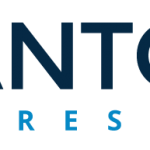The right financial advice can save a business a great amount of money. The business and financial sectors require hourly communication, so these professionals must work hard to communicate clearly. To explain, Derek Vinge, a Branch Office Administrator at Edward Jones in Estes Park, Colorado, recently shared his wisdom regarding the communication process. Beyond his Derek’s professional history, he provided a look into his daily activities at Edward Jones, as well as some advice he has for up and coming business professionals on how to communicate in financial and business contexts.

What is your professional history? “I have been in the financial industry for more than 11 years and with Edward Jones since 2016. Prior to Joining Edward Jones, I was a branch manager with Ameriprise Financial in Minnesota and had been with the firm since 2009. I’m a graduate of Hamline University In St. Paul, MN. I have a bachelor’s of arts in economics. I am a member of Rotary and currently sit on the board of directors. Also, I’m on the board of directors for the Estes Valley Partners for Commerce.”
What writing advice do you have for professional communicators?
The three most important things I try to remember when writing are to remember my audience, using a strong and active style, and remember to stay on point. When I say remember the audience I mean that you always need to think about who you are writing to. You can change your style accordingly to fit best for each situation.
What is your one pet peeve when it comes to professional writing? “The one biggest pet peeve I have when it comes to professional writing is when other colleagues use child like “slang” when writing an email to a superior or something of that nature. When writing in the workplace you must be professional no matter what. Using slang makes you look like you are immature and shouldn’t be taken serious.”
What kind of business reports do you read and/or compose regularly? “Most of the professional type documents that we look at are financial statements. These consist of written records that convey the financial activities and conditions of a business or entity.”
What are your writing suggestions to make those types of reports successful? “The most important thing I think when it comes down to writing financial statements is that you need to be clear and concise in your writing. There is no need to write a page of information when only a couple sentences are needed.”

What speaking advice do you have for professional communicators? “Speaking in front of people never came easy to me. I was always very soft spoken and shy until I was thrown into the adult world. So I know its hard for some people to speak in front of people. What helped me the most was that I was confident in whatever I had to say. Having confidence will give you a boost that can help you get through the nerves of speaking in front of people. Also, try not to focus on the bad things while speaking. So what if you mess up a couple words? Odds are no one is going to remember you for that. Ultimately I think that the most important thing to remember when speaking is to have confidence.”
Name one thing you wish you had known about business communication prior to your professional career?” He answered the question by stating “The only thing that I wish that someone would have taught me before I got into my career was how to talk to people. My first couple years as a financial adviser were tough times because I had no idea how to talk to people. I was always nervous and afraid when talking to some of my clients, but thankfully I became comfortable with talking to people after doing it for so long.
After assessing the Burning Glass list of Baseline Skills (2016), which skills not in the top 5 would you move into the top 5…and why?
1. Communication skills: Communication skills are as important in the professional workplace as they are in everyday life. It is a skill that you can always get better at and a skill that you won’t ever stop using. 2. Organizational skills: These skills are important because like communication skills you use them in the workplace and at home. You should always be able to improve on your organization. 3. Problem solving: No matter what field of work you go into you will always encounter problems so problem solving is a great skill to have. If you are a good problem solver you will excel at whatever you do. 4. Research: Research is very important when making decisions and giving advice, so someone who is good with research will be able to give very informed opinions and advice. 5. Project management: this skill is always good to have when working with a team. It is important that all members of the party stay on task and meet deadlines, so the leader of the group must be able to manage the project and the people well.

Credit: Burning Glass Technologies
What team skills do you feel young professionals need the most? “The most important skill I think young professionals need is to be driven. I see so many young people today that are obsessed with all the wrong things and have such negative thoughts about work. If they would realize that if they tried to enjoy their work and be the best worker that they could be no matter what job then I think they would be ten times better at their job.”

Key Takeaways
Derek gave some excellent answers to the questions asked surrounding business and professionalism. He brought up a good point when he talked about “remembering the audience.” Remembering your audience while writing is very important because you can do a better job of writing towards your audience in a way that would help them better understand it. Another good point that he brought up was the aspect of speaking and how to confidently speak to other people and to groups of people. Once you gain confidence in speaking, it’s easier to become a better speaker and feel very comfortable talking to people.
The most important thing that Derek touched on in the interview was that being a good and professional communicator is more than embodying only a few aspects of communication. A good and professional writer must be confident, driven, and respectful.
Derek Vinge is a senior financial adviser at an Edward Jones firm in Estes Park, Colorado. Derek graduated from Hamline University in St. Paul Minnesota with a bachelor of arts degree in Economics. Derek has spent his most recent 11 years in the financial field. Before starting at Edward Jones in 2016, Derek worked at a city financial office in St. Paul Minnesota.
Warner Karger is a sophomore at the University of Southern Indiana. He is majoring in Computer Science and enjoys playing video games and basketball in his free time. Warner is from Evansville, Indiana and plans to move to the west coast after graduating.

